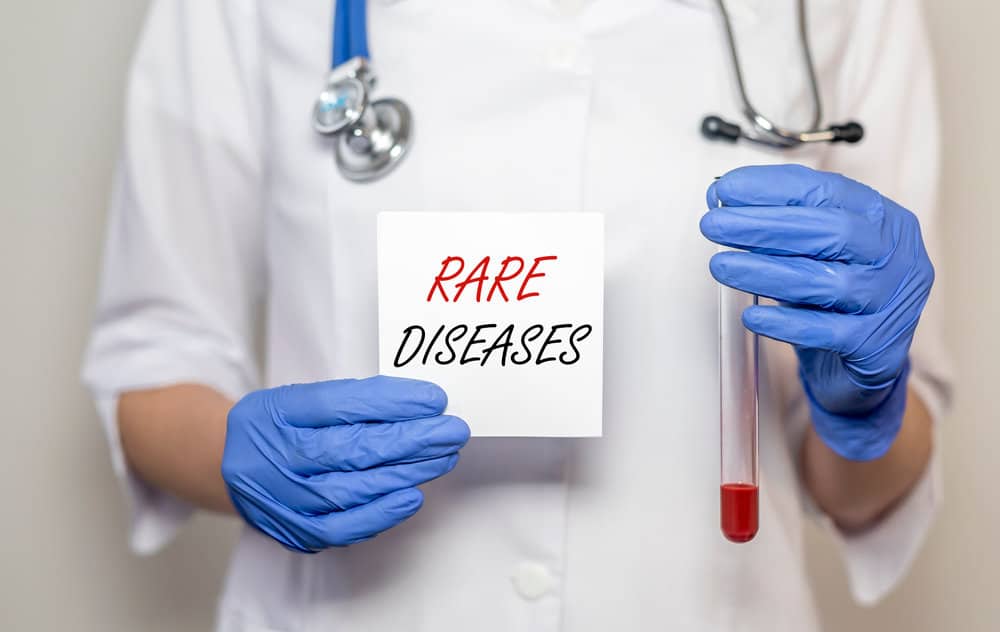
POEMS syndrome is a rare blood disorder suspected to affect up to 5000 people in the USA, primarily men who are in later adulthood (around age 50).
This syndrome damages the nerves and organs due to an increased number of abnormal plasma cells with overproduction of proinflammatory molecules resulting in leaky capillaries leading to edema, effusions, nerve damage, pulmonary hypertension and an increase in WBCs and platelets.
This syndrome damages the nerves and organs due to an increased number of abnormal plasma cells with overproduction of proinflammatory molecules resulting in leaky capillaries leading to edema, effusions, nerve damage, pulmonary hypertension and an increase in WBCs and platelets.
Signs & Symptoms
POEMS stands for its most common symptoms:
Polyneuropathy: Nerves throughout the body malfunctioning
Endocrinopathy: Malfunctioning endocrine gland
Skin Changes
Polyneuropathy: Nerves throughout the body malfunctioning
- Pain in the legs and feet, and sometimes the hands and arms
- Numbness, tingling, or weakness in the lower extremities
- Difficulty breathing
- Typically, it’s an enlarged spleen, liver, and/or lymph nodes
Endocrinopathy: Malfunctioning endocrine gland
- Hormone levels that are abnormal which can result in hypothyroidism, diabetes, sexual dysfunction, fatigue, edema in limbs, or issues with metabolism
- Men may have fertility issues and gynecomasia (large breasts)
- Women may miss periods and have gynecomasia
- Can be associated with bone thickening or hardening (osteosclerotic bone lesions)
Skin Changes
- Darkening of skin (hyperpigmentation) and thickening of skin
- Increase of facial hair and leg hair
- Fingernails turn white
- Blood vessels that look like cherries on the chest (red spots)
Diagnosis
The cause of POEMS isn’t clear, and POEMS can be misdiagnosed since its signs and symptoms are similar to other disorders. Early diagnosis is key since POEMS can become life-threatening without treatment.
Diagnosis is complex and performed based on several tests and a physical exam – your healthcare provider may take blood or urine samples to check for M-protein or an abnormal amount of blood cells, imaging (x-rays or CT scans) to see if excess M-protein has caused bone thickening, a bone marrow biopsy to check for a high number of plasma cells, or an electromyogram (EMG) which is a test that measures nerve function.
Diagnosis is complex and performed based on several tests and a physical exam – your healthcare provider may take blood or urine samples to check for M-protein or an abnormal amount of blood cells, imaging (x-rays or CT scans) to see if excess M-protein has caused bone thickening, a bone marrow biopsy to check for a high number of plasma cells, or an electromyogram (EMG) which is a test that measures nerve function.
Treatment & Prognosis
There is no cure for POEMS, and treatment is essential. Treatment is focused on easing the symptoms, including radiation therapy and chemotherapy (to destroy abnormal plasma cells), autologous stem cell transplant (replacing abnormal plasma cells with healthy stem cells), and physical therapy for physical issues due to the polyneuropathy.
The prognosis for someone diagnosed with POEMS depends on the symptoms and how the patient responds to treatment. The average survival rate is 14 years, which means some may survive longer than that. Each patient is different in their own experience and treatment. The last decade has shown an improved prognosis for those diagnosed with POEMS.
The prognosis for someone diagnosed with POEMS depends on the symptoms and how the patient responds to treatment. The average survival rate is 14 years, which means some may survive longer than that. Each patient is different in their own experience and treatment. The last decade has shown an improved prognosis for those diagnosed with POEMS.
Sources and More Information
NORD, Rare Diseases, “POEMS Syndrome” https://rarediseases.org/rare-diseases/poems-syndrome/.
Cleveland Clinic, Rare Health Diseases, “POEMS Syndrome” https://my.clevelandclinic.org/health/diseases/17985-poems-syndrome.
Mayo Clinic, Disease and Conditions, “POEMS Syndrome” https://www.mayoclinic.org/diseases-conditions/poems-syndrome/symptoms-causes/syc-20352678.
National Center for Advancing Translational Sciences – GARD (Genetic and Rare Diseases Information Center), “POEMS syndrome” https://rarediseases.info.nih.gov/diseases/7411/poems-syndrome.

